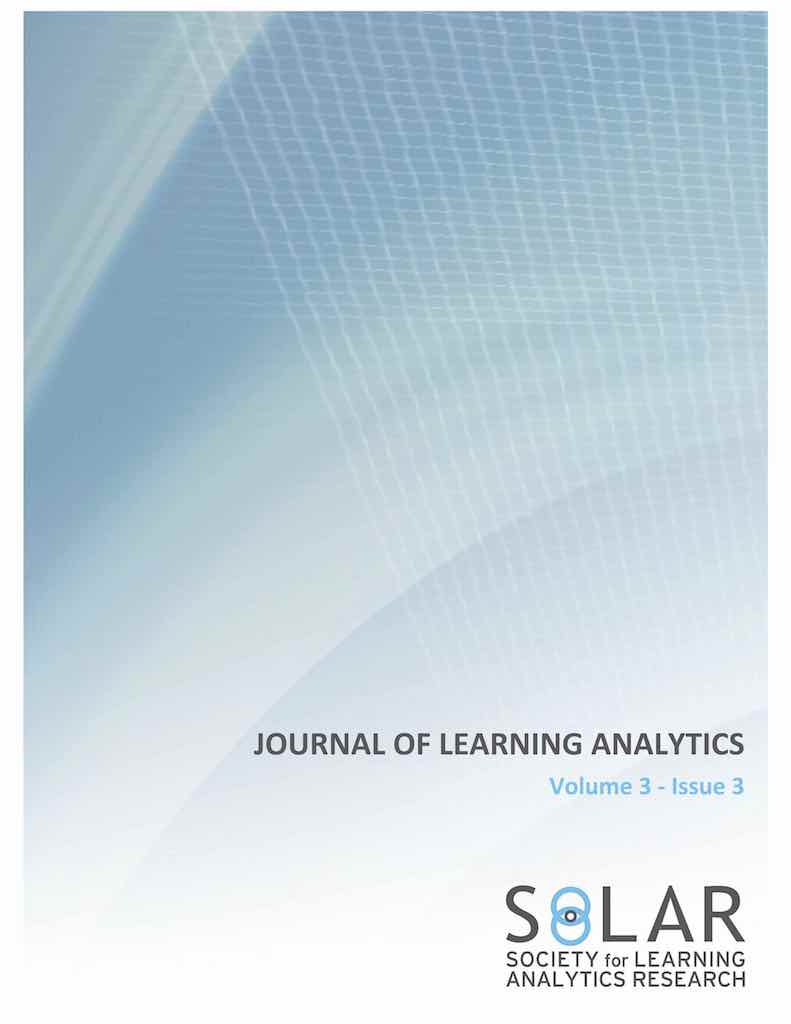Prototyping Visual Learning Analytics Guided by an Educational Theory Informed Goal
DOI:
https://doi.org/10.18608/jla.2016.33.7Keywords:
Data visualization, visual learning analytics, universal design for learning (UDL), paper prototype, formative evaluation, summative evaluationAbstract
Prototype work can support the creation of data visualizations throughout the research and development process through paper prototypes with sketching, designed prototypes with graphic design tools, and functional prototypes to explore how the implementation will work. One aspect of data visualization work that is challenging is coordinating the expertise of people from a variety of roles to produce data visualizations that are guided by an educational theory informed goal (ETIG) in order to better support research. When collaborating concessions must be made and typically everyone seeks to follow the best practices established within their own disciplines. This paper attempts to illustrate how to rethink this interdisciplinary approach to adhere more strictly to educational research goals and consider how we may need to, at times, break away from best practices with the intent to evaluate the novel decisions that result from this approach. A case study of the creation of a self-reported emotional measure is used to illustrate this type of collaboration and by taking this approach a clear departure from best practices occurs in the scale selection for the visualization in order to support the ETIG.
Downloads
Published
How to Cite
Issue
Section
License
TEST


